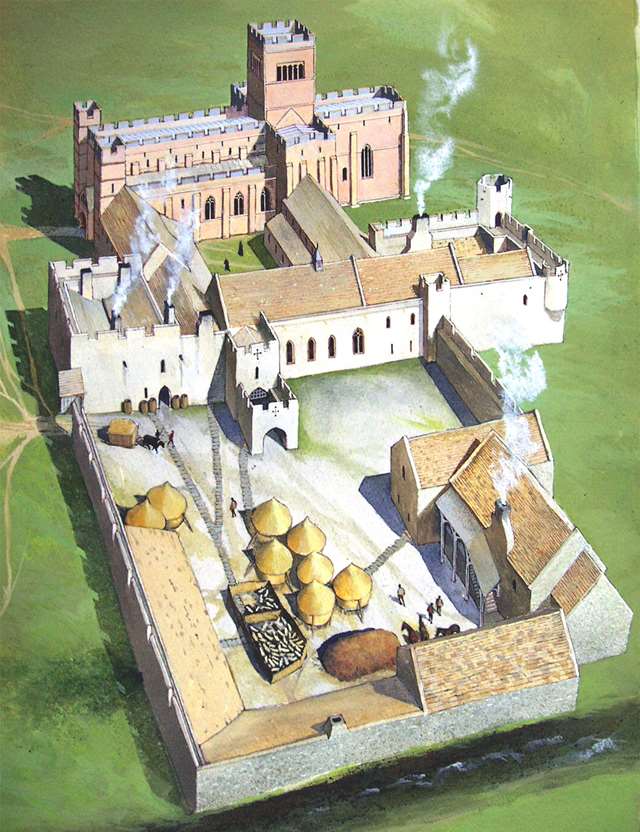A report in the online version of the Northumberland Gazette covers recent excavations on Lindisfarne and the analysis of animal, bird and fish bones from medieval levels.
In addition to the Priory - a dependency of the Cathedral Priory in Durham - Holy Island supported a fishing community whose catch went principally to feed the monks at Durham with their pescatarian diet.
The English Heritage website account of the Priory and its rich and varied history can be seen at History of Lindisfarne Priory

The recent excavations have shown a surprisingly varied selection of bones from not just the usual four legged animals but from birds and fish which suggests a more varied diet than one might expect.
The article can be read at Archaeological dig unearths fascinating new insight into medieval life on the Northumberland coast
Whether the diet was as extreme as that on the much more remote St Kilda in later centuries is not clear. On St Kilda it is thought people ate 36 eggs and 18 seabirds a day according to the Daily Telegraph article at The island where you’d eat 36 eggs and 18 seabirds per day
I have stayed on Lindisfarne over thirty years ago with a religious community. As far as I recall we ate well, but we did not eat turtle, puffin, guillemot or gull, still less Great Auk….,


No comments:
Post a Comment